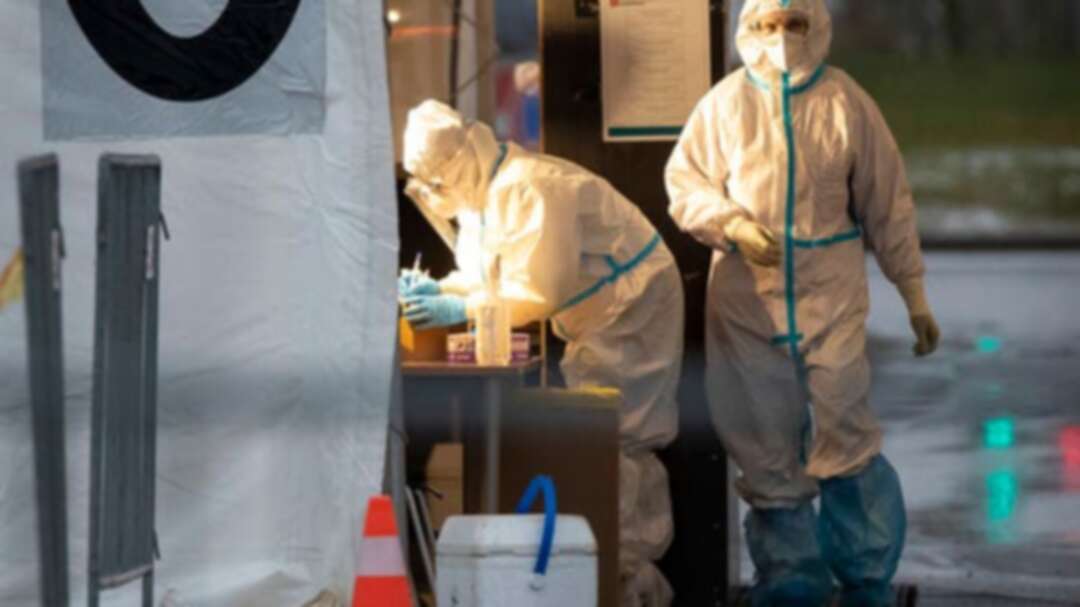-
Lithuania expects enough COVID-19 vaccines to achieve herd immunity by July

Lithuania’s president said on Friday the country would receive enough COVID-19 vaccines to inoculate 70 percent of its population by early July, and that this would achieve herd immunity.
The ambitious supply schedule hinges on vaccines from AstraZeneca and Johnson & Johnson being approved for use in the European Union, in addition to the Pfizer shot already being administered, President Gitanas Nauseda said.
“We received assurances from the European Commission president that Lithuania will be able to vaccinate 70 percent of population by early summer, because we will receive 4 million vaccines during the first and second quarters,” Nauseda said.
“The challenge is about to change from vaccine shortages to setting up mass vaccinations, so that we use the time optimally and can fully reach collective immunity (by early July). This is the goal we can set for ourselves,” he told reporters.
The World Health Organization has estimated that 60-70 percent of a population needs to be vaccinated to break transmission.
However, the concept of herd immunity comes with caveats and big demands of what vaccines might be capable of preventing, and some experts say such expectations are misplaced.
Experts point to various still unresolved factors - such as the rate of the spread of the COVID-19-causing virus, whether vaccines can stop transmission or just stop people getting ill, how many people in a population will accept a vaccine, and whether vaccines offer the same protection to everyone.
Nauseda said Lithuania, a Baltic republic of 2.8 million people, will need to vaccinate 10,000 per day by February and up to 35,000 people per day by April to reach the July target.
Between 1,000 and 4,000 people have received the vaccine daily this week, according to government data.
source: Reuters
Image source: AP
Levant
You May Also Like
Popular Posts
Caricature
BENEFIT Sponsors BuildHer...
- April 23, 2025
BENEFIT, the Kingdom’s innovator and leading company in Fintech and electronic financial transactions service, has sponsored the BuildHer CityHack 2025 Hackathon, a two-day event spearheaded by the College of Engineering and Technology at the Royal University for Women (RUW).
Aimed at secondary school students, the event brought together a distinguished group of academic professionals and technology experts to mentor and inspire young participants.
More than 100 high school students from across the Kingdom of Bahrain took part in the hackathon, which featured an intensive programme of training workshops and hands-on sessions. These activities were tailored to enhance participants’ critical thinking, collaborative problem-solving, and team-building capabilities, while also encouraging the development of practical and sustainable solutions to contemporary challenges using modern technological tools.
BENEFIT’s Chief Executive Mr. Abdulwahed AlJanahi, commented: “Our support for this educational hackathon reflects our long-term strategic vision to nurture the talents of emerging national youth and empower the next generation of accomplished female leaders in technology. By fostering creativity and innovation, we aim to contribute meaningfully to Bahrain’s comprehensive development goals and align with the aspirations outlined in the Kingdom’s Vision 2030—an ambition in which BENEFIT plays a central role.”
Professor Riyadh Yousif Hamzah, President of the Royal University for Women, commented: “This initiative reflects our commitment to advancing women in STEM fields. We're cultivating a generation of creative, solution-driven female leaders who will drive national development. Our partnership with BENEFIT exemplifies the powerful synergy between academia and private sector in supporting educational innovation.”
Hanan Abdulla Hasan, Senior Manager, PR & Communication at BENEFIT, said: “We are honoured to collaborate with RUW in supporting this remarkable technology-focused event. It highlights our commitment to social responsibility, and our ongoing efforts to enhance the digital and innovation capabilities of young Bahraini women and foster their ability to harness technological tools in the service of a smarter, more sustainable future.”
For his part, Dr. Humam ElAgha, Acting Dean of the College of Engineering and Technology at the University, said: “BuildHer CityHack 2025 embodies our hands-on approach to education. By tackling real-world problems through creative thinking and sustainable solutions, we're preparing women to thrive in the knowledge economy – a cornerstone of the University's vision.”
opinion
Report
ads
Newsletter
Subscribe to our mailing list to get the new updates!






















